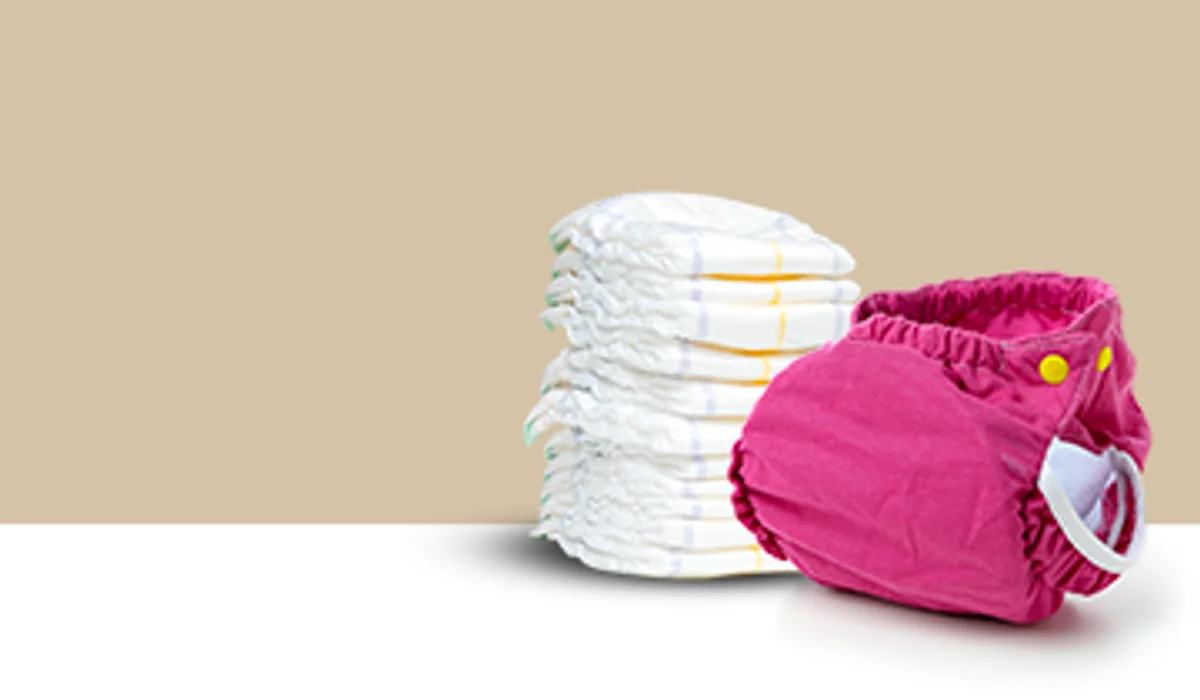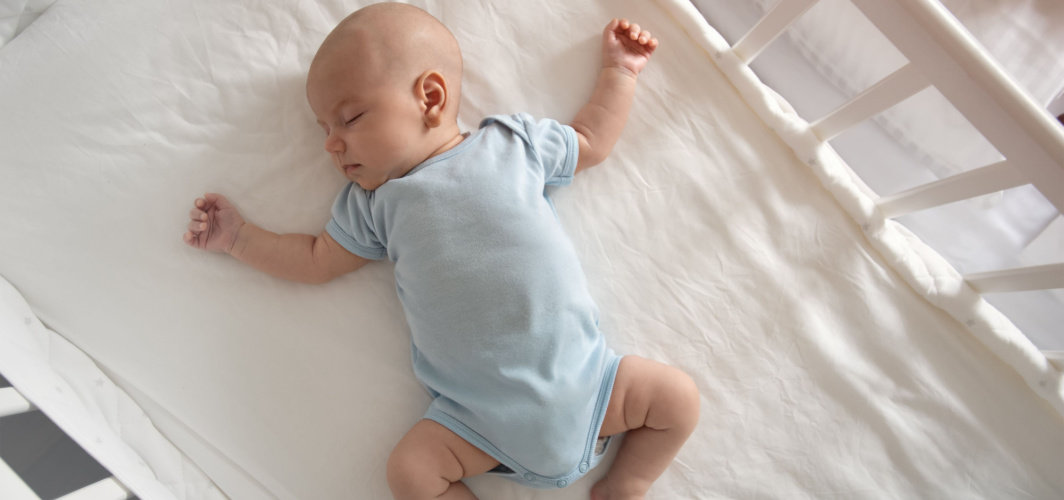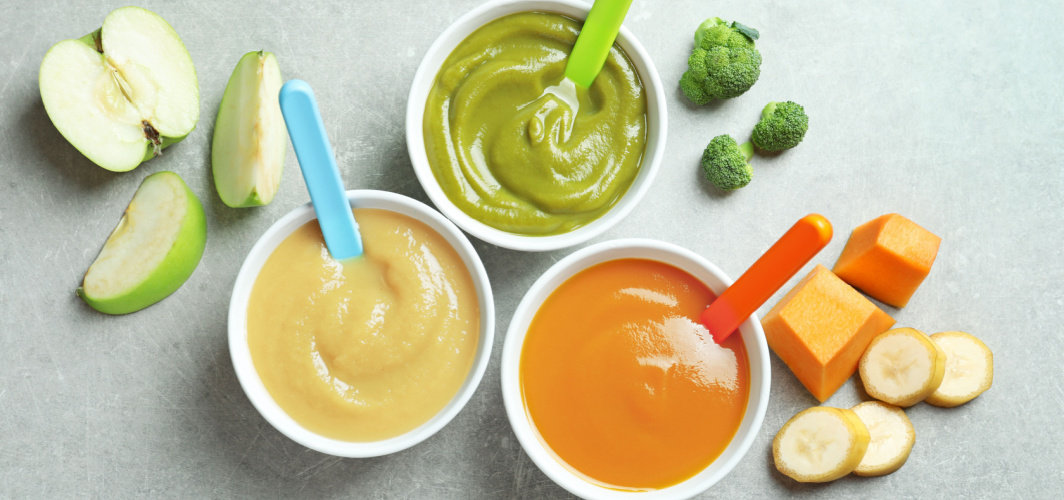- Home
- Blog
- Mom & Baby Care
Cloth Diapers vs Disposable Diapers: Which is Better?
Mom & Baby Care
Cloth Diapers vs Disposable Diapers: Which is Better?
By - 08 June 2022, Updated on -22 December 2022
Share this article
0
11 likes

Many people don't know that disposable diapers use a technology called SAP (Super Absorbent Polymer) to absorb liquid. Cloth Diapers have a lot of benefits such as convenience and comfort which is why they are so popular among parents who want to be environmentally friendly.
However, cloth diapers do not provide the same level of protection from leakage or accidents like disposable ones do, so there is still a need for disposable products when it comes to sensitive areas such as baby bottoms!
Many parents fail to take care of their baby’s cloth diapers, and this can lead to a number of problems for their little child. One big mistake that parents make when it comes to washing their baby’s cloth diapers is using strong detergents or fabric softeners because these leave behind a residue which can cause rashes and irritation on the skin of the child.
Another mistake that you might be making is not changing your baby’s diapers often enough – if a diaper is left on for too long it can lead to yeast infection and diaper rashes.
Disposable diapers have been in use since the 1950s and some disposable diapers have been around for more than 60 years! They are also soft, so they don’t cause any discomfort for babies. Disposable diapers can be a good way for parents to stay organized because of their disposable nature.
Disposable diapers come with a wide variety of designs and offer parents choices for their babies such as different sizes, training pants and much more. Disposable diapers are now available in eco-friendly versions that use recycled materials or renewable resources such as cornstarch based fibers, which is the latest technology in the world of diaper manufacturing. Disposable diapers are available in a variety of designs, textures and absorbency levels.
Disposable Diaper Design Features:
Anatomical Padding – Anatomical padding works to reduce the chance of diaper rash by creating a barrier between the baby's skin and the diaper. It consists of a super-absorbent core surrounded by a layer of polymers that quickly absorb liquid and draw it away from sensitive skin. Some brands include materials that are antimicrobial in order to reduce diaper rash caused by bacteria.
Leakage Protection – Disposable diapers often contain materials designed to keep the baby's skin dry, such as SAP (Super Absorbent Polymer). The gel-like material quickly absorbs liquid within the diaper, but when this chemical is exposed to air it turns into a gel causing an uncomfortable feeling when in contact with skin. This is called "gel blocking". The anti-leakage barrier prevents SAP from shifting and creating gel trapping moisture against the baby's skin without any airflow over the skin.
Disposable Diaper Design Elements:
Diapers have two distinct design elements, the outer shell and the inner lining. The outer shell is made of a thin material to allow air circulation onto baby's skin which prevents diaper rash from bacteria growth while the inner lining works to wick away moisture from baby's skin. In addition to the design elements, disposable diapers may contain a wide variety of materials and chemicals worked in the inner lining and outer shell.
All-in-Ones (AIO) – AIOs consist of an absorbent pad sewn into the center of the diaper. They are usually made up of two separate materials, an outer shell material with a waterproof backing to keep the pad dry and prevent leakage. They are designed for one-time use, allowing parents to dispose of them after they have been used.
All-in-Twos (AI2) – An AI2 consists of a water resistant outer shell and an absorbent pad sewn into the center. When the baby wets the diaper the liquid travels through the lining to reach the center layer where it is absorbed before traveling onto other layers within the diaper. They are designed for multiple uses, allowing parents to adjust absorbency by adding or removing the absorbent pad. They are also easy to wash because each part can be removed and washed individually. All-in-Twos come in the same designs as AIOs, pre-fastened or fastened at the back of the baby's diaper. The difference is that they consist of two parts that need to be fitted around the baby to provide a snug fit.
Pocket Diapers – Pocket diapers consist of an outer shell that contains a hidden layer of fabric sewn into the diaper allowing parents to insert absorbent pads into the lining. This is one of the most versatile designs available because they offer multiple layers of absorbency. They are easy to maintain because you only have to remove the soiled pad and replace it with a fresh one.
There are many disposable diaper brands available today, each using SAP technology to absorb liquid. Some disposable brands that we offer are Pampers, Huggies, MamyPoko, Himalaya as well as our very own Apollo Pharmacy branded diapers!
In this article, we have covered the most important aspects of designing a disposable diaper. We hope that by reading our blog post you will be better informed about how to design the best possible product for your customers and business! If you have any questions or want to know more about diapers, please feel free to leave a comment or contact us via email.
Services
Mom & Baby Care
Leave Comment
Services
Recommended for you

Mom & Baby Care
Improving the digestive health of mothers
The digestive patterns of aging women change over time and may have an impact on gut health. Overall, the gut health of a mother can be improved by understanding the importance of digestive health and eating foods that promote good digestion. #ApolloPharmacy #HealtheirGut #GoodDigestion #CareForMother #WorldDigestiveHealthDay

Mom & Baby Care
Baby Sleep Schedule: A Guide For New Mothers
Baby sleep schedule varies throughout their age. Moreover, it is likely to be different from one child to another. Parents should watch for changing baby sleep schedules and seek medical help if they sense something unusual.

Mom & Baby Care
A Guide For Parents On When And How To Introduce Solid Foods To Their Baby
The article highlights signals that a baby is ready for solid foods, such as adequate head and neck control, and includes tips on how to guarantee proper nutrition, such as introducing a varied range of textures and foods.
Subscribe
Sign up for our free Health Library Daily Newsletter
Get doctor-approved health tips, news, and more.

